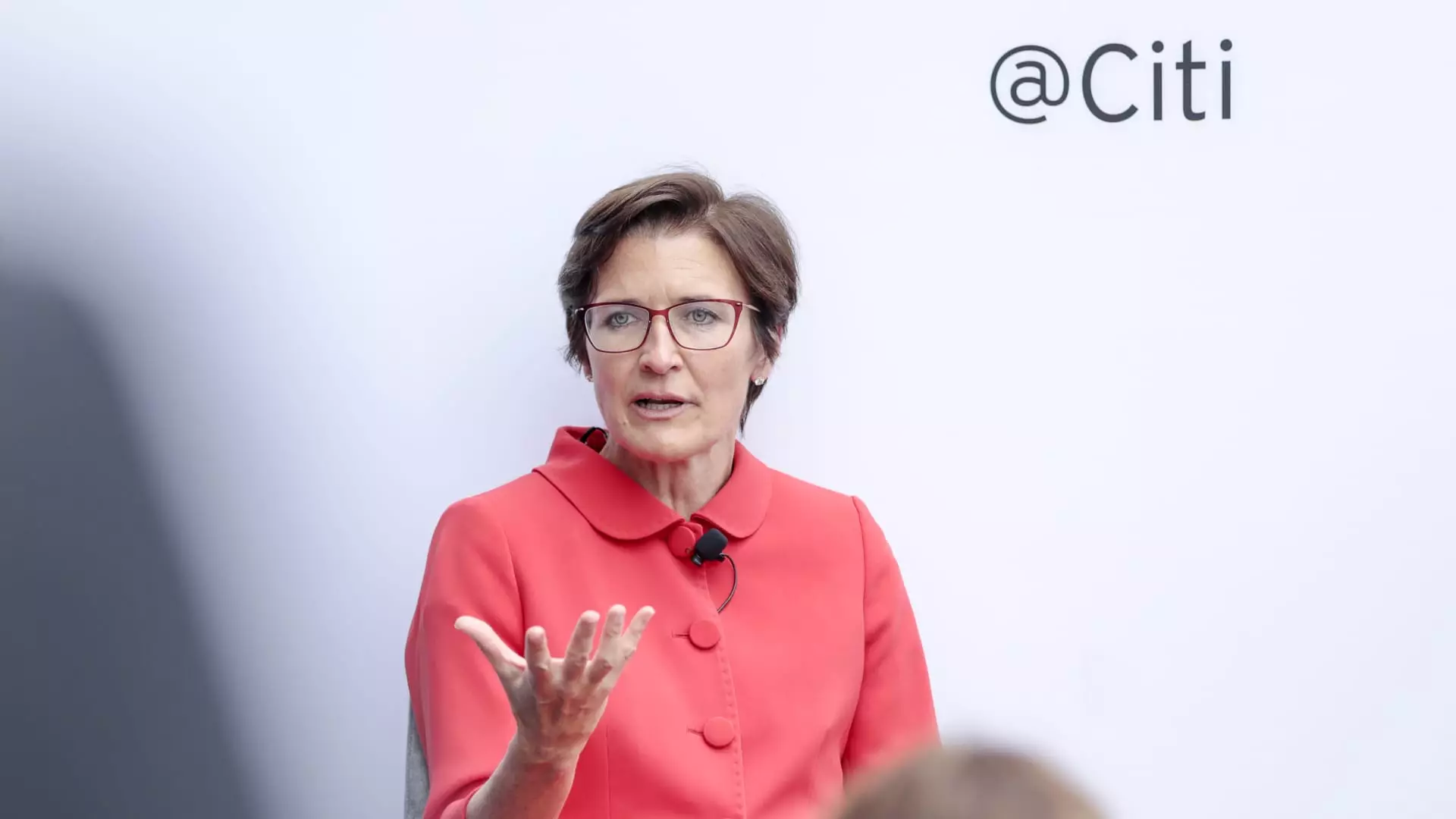Citigroup’s recent announcement of its fourth-quarter earnings marks a notable recovery for the banking giant, releasing results that surpassed the expectations of Wall Street analysts. Shares saw a considerable uptick, climbing over 2% in premarket trading, reflecting investor confidence in the figures reported. The bank reported earnings of $1.34 per share against the anticipated $1.22, while revenue came in at $19.58 billion, slightly above the $19.49 billion forecasted. This robust performance has contributed to Citigroup’s narrative of resurgence after a tumultuous period last year.
The reported net income for the quarter was $2.86 billion, a substantial turnaround from the $1.84 billion loss recorded in the same quarter last year. However, it’s essential to note that year-over-year comparisons can be clouded by the significant charges the bank incurred during the last quarter of 2023. A closer examination of the numbers reveals that despite these challenges, Citigroup has managed to bounce back by capitalizing on various segments within its business.
Interestingly, the growth within Citigroup was not uniform, but there were standout areas that contributed significantly to the overall performance. Investment banking emerged as one of the leading contributors, with a remarkable 35% year-over-year revenue increase. When factoring in loan hedges, total banking revenue showcased a healthy 27% growth, evidencing the effectiveness of Citi’s strategic focus.
Simultaneously, the bank’s markets revenue also reflected a solid performance, soaring by 36% year over year. Particularly, fixed income markets outperformed analyst expectations by generating a substantial $3.48 billion, surpassing projections of $2.95 billion. The momentum in the market can largely be attributed to the increasing issuance of investment-grade corporate debt, indicating a healthy appetite for such financial instruments in the marketplace.
The wealth and services divisions have also been notable performers, with respective year-over-year revenue increases of 20% and 15%. This diversification within Citi’s operational focus shows that the bank is not solely reliant on traditional banking services but is also capitalizing on broader financial services.
CEO Jane Fraser described the results as indicative of a well-executed strategic plan aimed at enhancing operational performance. Under her stewardship, which began in March 2021, there has been a concerted effort to streamline operations, including reductions in international units. Fraser’s vision appears to be aligned with achieving sustainable growth in the face of previous challenges the bank encountered.
As the new fiscal year progresses, analysts and investors will be particularly attentive to updates regarding Fraser’s ongoing turnaround strategy. Citigroup’s stock has already demonstrated impressive growth in 2024, with an almost 37% increase, sparking optimism around its potential for continued performance increases. Anticipation builds around what further refinements and strategic initiatives may arise from upcoming discussions, fostering hope for sustained financial health moving forward.
Citigroup’s fourth-quarter results showcase a bank on the mend, with diversified growth across multiple sectors leading the charge, instilling a renewed sense of confidence among investors and stakeholders alike.

Leave a Reply